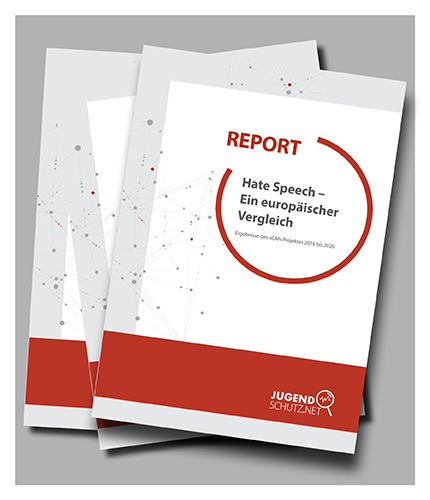Corona pandemic: conspiracy myths on the rise
In the COVID-19 pandemic, anti-Semitic conspiracy myths in particular have gained new currency internationally. In the process, existing extremist narratives were adapted to the current situation and Jews were blamed for the emergence and spread of the virus. "Secret elites" would use the pandemic to establish a "New World Order" or introduce a dictatorship. Often, this directly addresses a youth target group. This observation by jugendschutz.net has now also been confirmed across countries in a project with European partner organizations. Often, well-known conspiracy myths against refugees were provided with new references. For example, the theory of the "Great Population Exchange," which originated in France, was widely disseminated under the pandemic. Now, the report "Hate Speech - A European Comparison" summarizes the results of two years of international project work.
From 2018 to 2020, jugendschutz.net and nine European partner organizations carried out the project "Platforms, Experts, Tools: Specialised Cyber Activists Network" (sCAN), funded by the EU Commission. In joint research, the various phenomena and dissemination channels of hate speech on the Internet were examined. The focus was on categorizing hate phenomena and trends as well as researching the response behavior of major social media services. What became clear was: Extremists from different countries use comparable narratives. In order to avoid the increasing moderation in large international networks, extremist groups are switching to smaller platforms.
The findings were incorporated into online courses and workshops. Partnerships and joint projects are to be continued after the end of the sCAN project as part of the International Network Against Cyber Hate (INACH).
jugendschutz.net is the joint competence center of the federal and state governments for the protection of children and young people on the Internet. jugendschutz.net researches dangers and risks in youth-oriented services and calls on providers and operators to design their offerings in such a way that children and young people can use them without worry.
Further information

